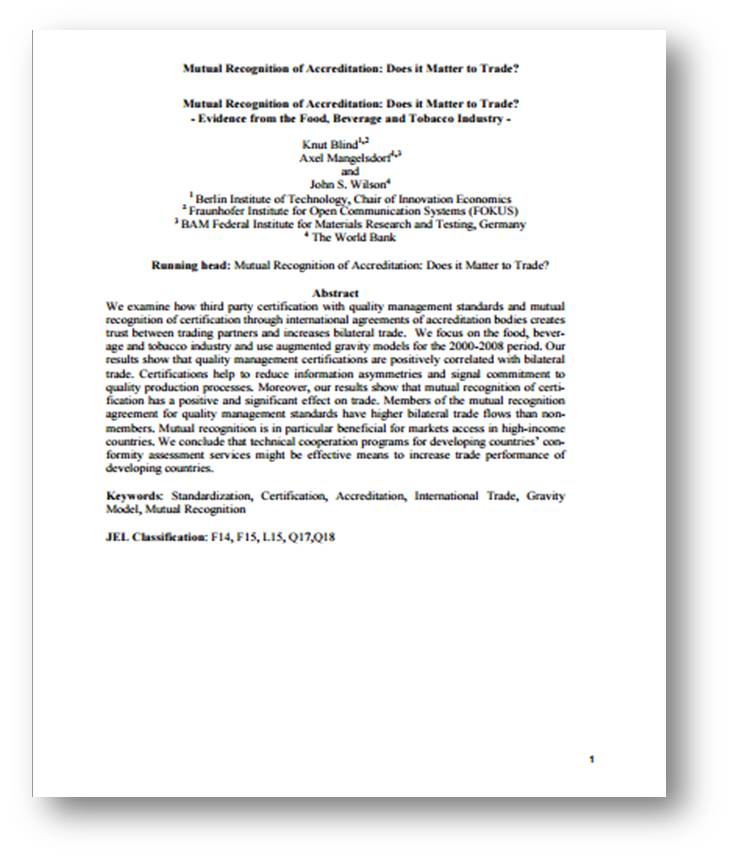Research
Mutual Recognition of Accreditation: Does it Matter to Trade? Evidence from the Food, Beverage, and Tobacco Industry
The authors examine how third party certification with quality management standards and mutual recognition of certification through international agreements of accreditation bodies creates trust between trading partners and increases bilateral trade. They focus on the food, beverage and tobacco industry and use augmented gravity models for the 2000-2008 period. Their results show that quality management certifications are positively correlated with bilateral trade. Certifications help to reduce information asymmetries and signal commitment to quality production processes. Moreover, the results show that mutual recognition of certification has a positive and significant effect on trade. Members of the mutual recognition agreement for quality management standards have higher bilateral trade flows than non-members. Mutual recognition is in particular beneficial for markets access in high-income countries. They conclude that technical cooperation programs for developing countries’ conformity assessment services might be effective means to increase trade performance of developing countries.
A copy of the report can be found on the ResearchGate website.
Authors:
Knut Blind, Berlin
Institute of Technology, Chair of Innovation Economics, Fraunhofer Institute for Open Communication Systems (FOKUS)
Axel Mangelsdorf, Berlin Institute of Technology, BAM Federal Institute for Materials Research and Testing, Germany,
John S. Wilson, The World Bank

